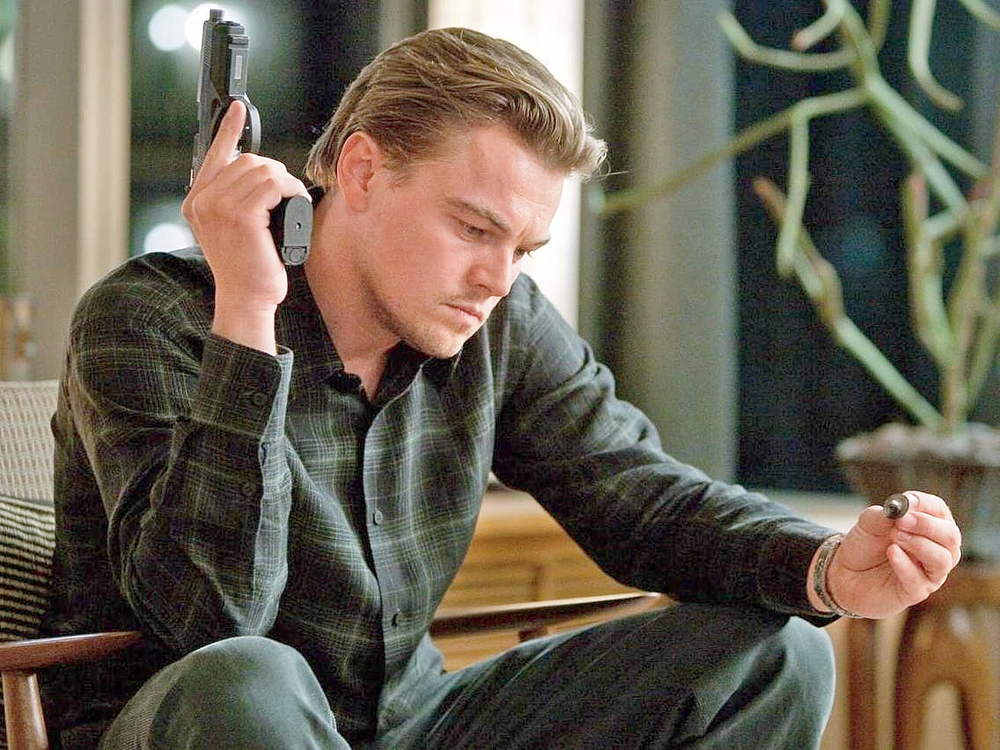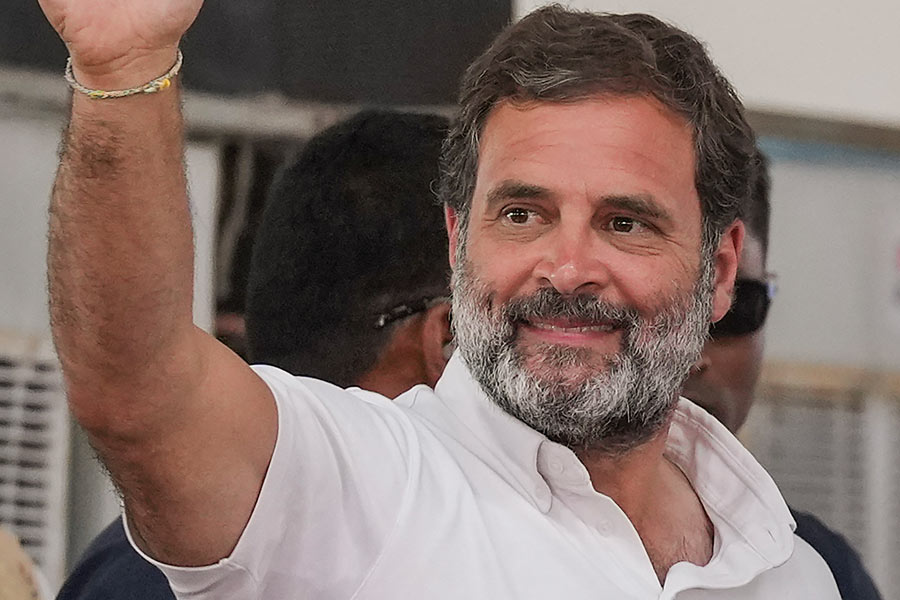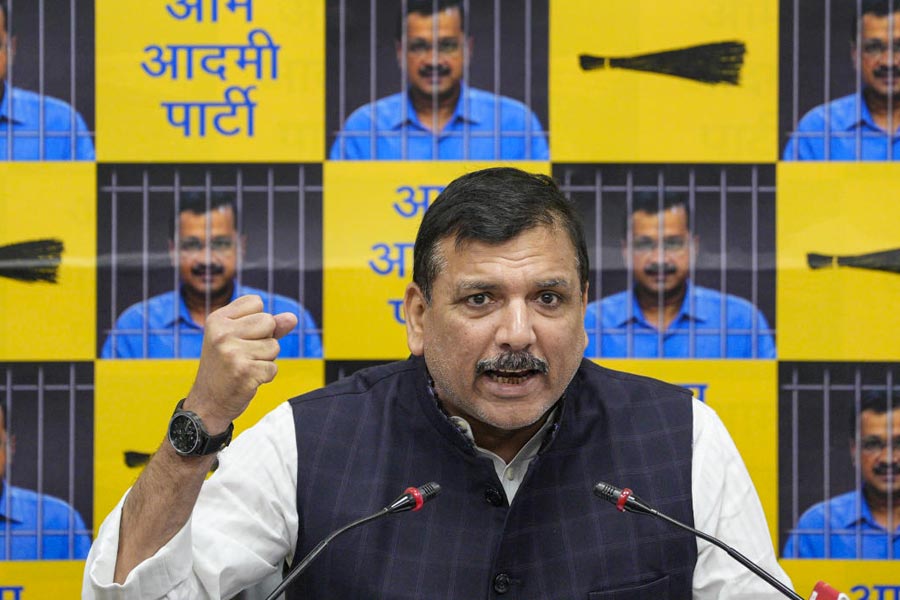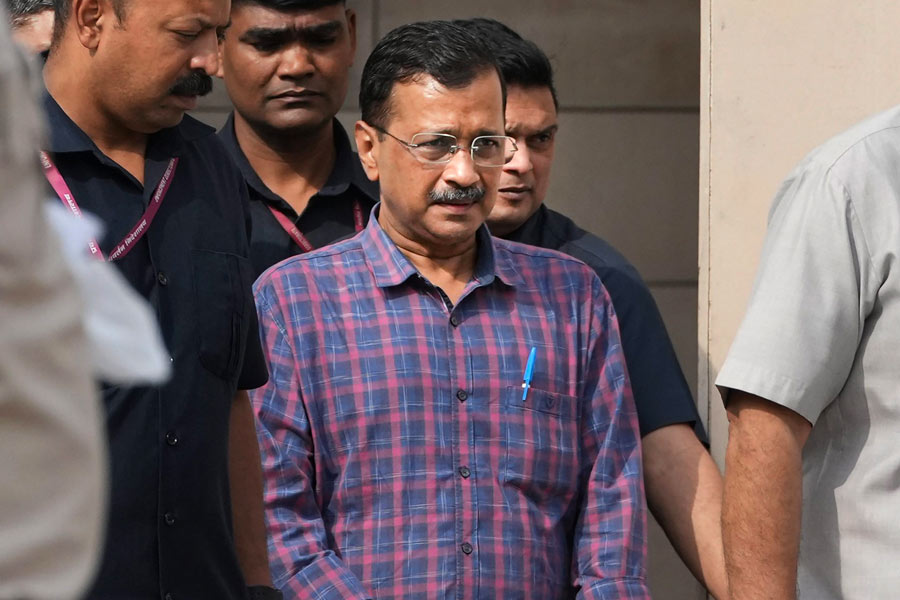2010: Inception
Director: Christopher Nolan
He had crafted thrillers like Memento and The Prestige before this, but Christopher Nolan became the master of the mind-bender with this Leonardo DiCaprio film that pushed the boundaries of storytelling in a way few other films had done in the past and have done since.
A sci-fi thriller about a thief (DiCaprio’s Dom Cobb) who possesses the power to enter into the dreams of others and steal their ideas, Inception was smart, innovative and thrilling (imagine watching a heist being carried out inside someone’s brain), rewarding the viewer with an experience that hit the high notes both viscerally and intellectually.
Its plot may have been complex — many parts of it mind-boggle us even today — but Inception was always coherent, with Nolan coming up with a fascinating swirl of a film that combined the twists and turns of Memento with the adrenaline-pumping energy of his own The Dark Knight.
A complete original, Inception may have been a tad overlong, but given Nolan’s genius and the talented cast — Tom Hardy to Joseph Gordon-Levitt, Marion Cotillard to Ellen Page — at its disposal, this was a film that you had to watch once, and then some more.
The film cemented Nolan’s position as one of the most exciting filmmakers of this generation and gave us a thriller that was both trippy and inventive, a lot like a dream that you didn’t want to come out of. With or without that spinning totem.
Special mention: The Social Network
Director David Fincher teamed up with screenwriter Aaron Sorkin to strike gold with an impeccable script that brought alive what went into creating Facebook and the resulting lawsuits that followed.
Jesse Eisenberg — playing Facebook founder Mark Zuckerberg — turned in an Oscar-worthy performance, with an incisively written script filmed with a kind of manic energy that kept the audience invested. Many parts of the film felt intriguingly personal and that’s where Fincher excelled as a filmmaker, focusing on the elements of isolation, avarice and betrayal, and not so much on the ‘tech’ bits, with Sorkin turning what was essentially a story about the formation of a social media site into a cautionary tale that was both riveting and relevant.
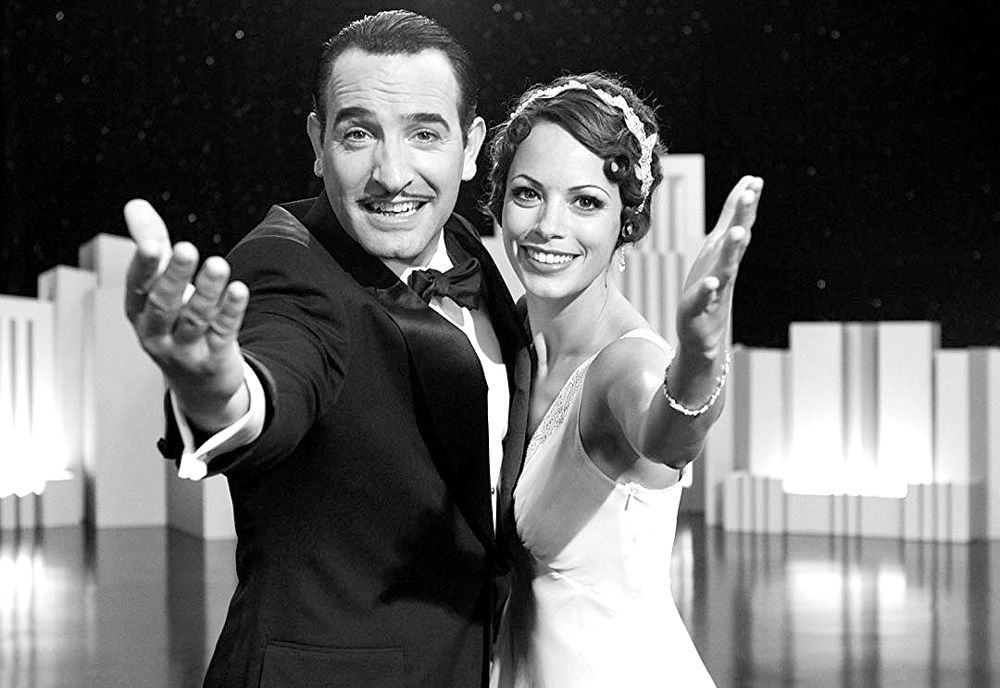
A scene from the movie Source: ‘The Artist’
2011: The Artist
Director: Michel Hazanavicius
The Artist was a testament to why films are essentially made. Nominated for 10 Oscars, it won five, but was much more than its awards, excelling both in narrative and visual style.
A magical tribute to the era of silent cinema, the black-and-white French film was distinguished by crowd-pleasing acts from lead stars Jean Dujardin and Berenice Bejo and delivered unadulterated joy in every frame of its (almost) wordless 100-minute running time.
A wondrous tribute to the early days of movie magic, The Artist was almost poetry on celluloid with an impeccable Dujardin pulling off a comic poignancy similar to Charlie Chaplin’s. The charm of the film lay in its honesty, playing off both for laughs and tears. And then, of course, was Uggie the dog.
Special mention: The Help
It may be guilty of glossing over part of its racial themes — it was a light-hearted and “safe” take on the relationship between black maids and their white employers in 1960s Mississippi — but there’s no denying the fact that The Help was an extremely enjoyable film powered by its women, in particular Viola Davis, Octavia Spencer and Emma Stone.
The film was so terrifically acted, with a lot of humour and heart, that one was willing to forgive its flaws. Great attention was paid to period details and the film was peppered with some fun moments, turning out to be an uplifting watch on courage, compassion, empathy and self-respect.
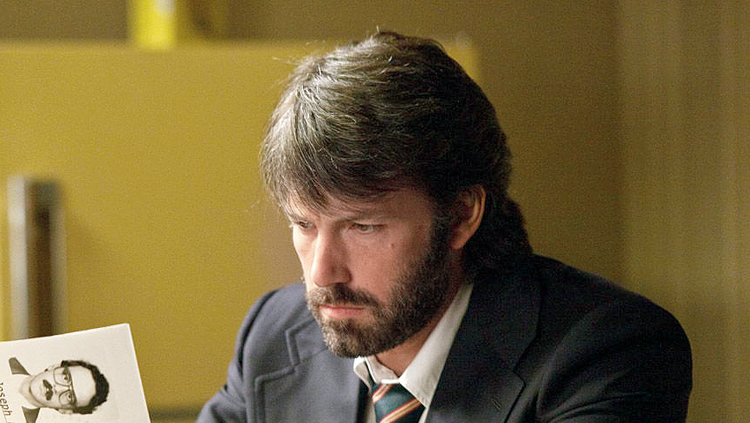
A scene from the movie Source: ‘The Artist’
2012: Argo
Director: Ben Affleck
Truth is stranger than fiction. That was the nail-biting premise of this thriller directed by Ben Affleck that chronicled the covert operation to rescue six Americans against the backdrop of the Iran hostage crisis that played out in the 1970s.
A satirical political thriller that ticked all the boxes needed for an edge-of-the-seat watch, Argo was masterfully directed and skilfully acted, functioning both as a spy film and an engaging piece of historical filmmaking.
Smart, funny (Alan Arkin and John Goodman were a hoot), brought alive by zingy lines (“Argo, go f*** yourself!”) and consistently engaging, Argo’s last act is the stuff vintage thrillers are made of. Affleck continues to be listless as an actor, but with Argo he proved once again that he’s a terrific filmmaker, delivering a solid dose of entertainment and pulling off both intelligence and ambition.
Special mention: Life of Pi
Yann Martel’s supposedly “unfilmable” book was successfully adapted to the big screen by Ang Lee, with the 2012 film delivering both in terms of being technically wondrous and emotionally rewarding.
Like the book, Lee succinctly touched upon themes of spirituality and survival, mortality and the search for religion in this coming-of-age tale of a boy stuck with a tiger on a boat in the middle of a raging sea that astounded with its beguiling beauty, whether it was the sparkling sea reflecting the luminous clouds, a sudden swarm of flying fish, an island swarming with meerkats or a whale breaching the water.
Lyrical, moving and genre defying, Life of Pi did have its share of problems — it felt shallow in parts — but the genius of Ang Lee conjured up a digital dreamscape that we couldn’t tear our eyes away from even as the film frequently brought a lump to the throat and also teased a smile.
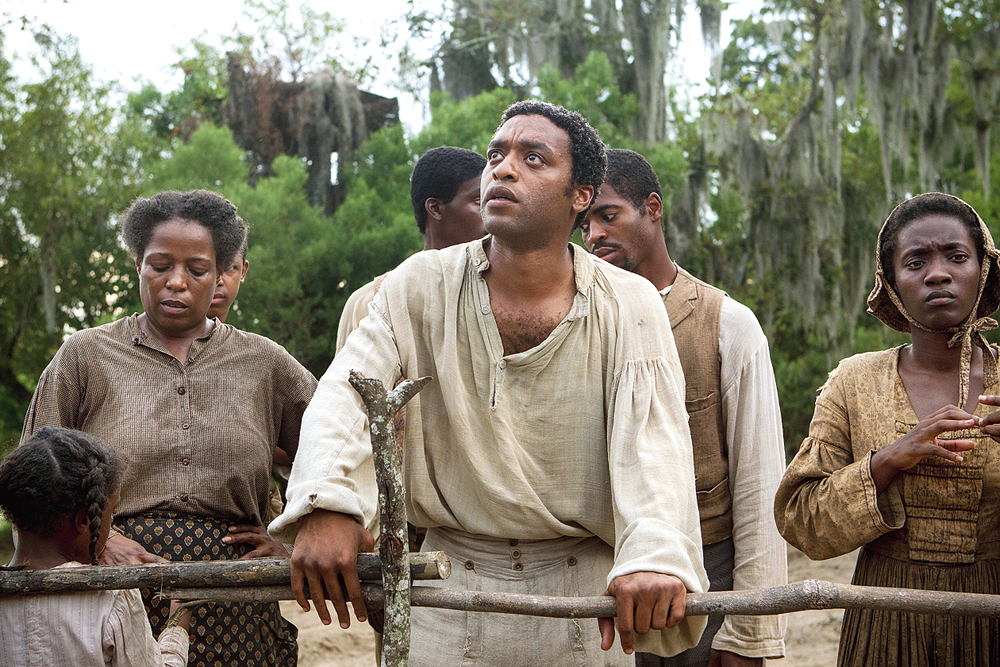
A scene from the movie Source: ‘12 Years A Slave’
2013: 12 Years A Slave
Director: Steve McQueen
Steve McQueen’s brilliant and brutal look at American slavery was both relevant and engaging, even if it made for largely uncomfortable viewing.
Telling an irresistibly powerful story in a way that didn’t shirk the horror, 12 Years a Slave was exquisitely built and expertly directed and a film of searing intensity and insight, powered by a strong, heartfelt performance by Chiwetel Ejiofor and an Oscar-winning turn by Lupita Nyong’o.
Raw and visceral, this was a brave piece of filmmaking that’s sure to last through the ages, presenting many vital issues that merit discussion and generating an emotional experience for most and for some, an anguish that was difficult to bear.
Its strength lay in the fact that despite being an emotional experience, it managed to tell its story through a largely unsentimental lens. 12 Years a Slave makes it to this list because more than being a great film, it’s an important film.
Special mention: The Conjuring
We were tempted to include Dallas Buyers Club — distinguished by Oscar-winning acts from Matthew McConaughey and Jared Leto — but ultimately went with The Conjuring, purely because of the way in which it brought about a resurgence in the horror genre.
Directed by James Wan — who has steadily become a master of the genre, one film at a time — The Conjuring put an effective spin to old-school scares and horror cliches, conjuring up a creepathon that made you jump out of your skin often, but one that also packed in a human story that stayed on with the viewer.
Hailed by many as the definitive horror classic of the decade, The Conjuring took the standard haunted house formula to come up with a finely crafted and genuinely scary production, its lack of predictability and reliance on atmospherics giving it many of its bump in the night scares. Three claps — and more — for this one.
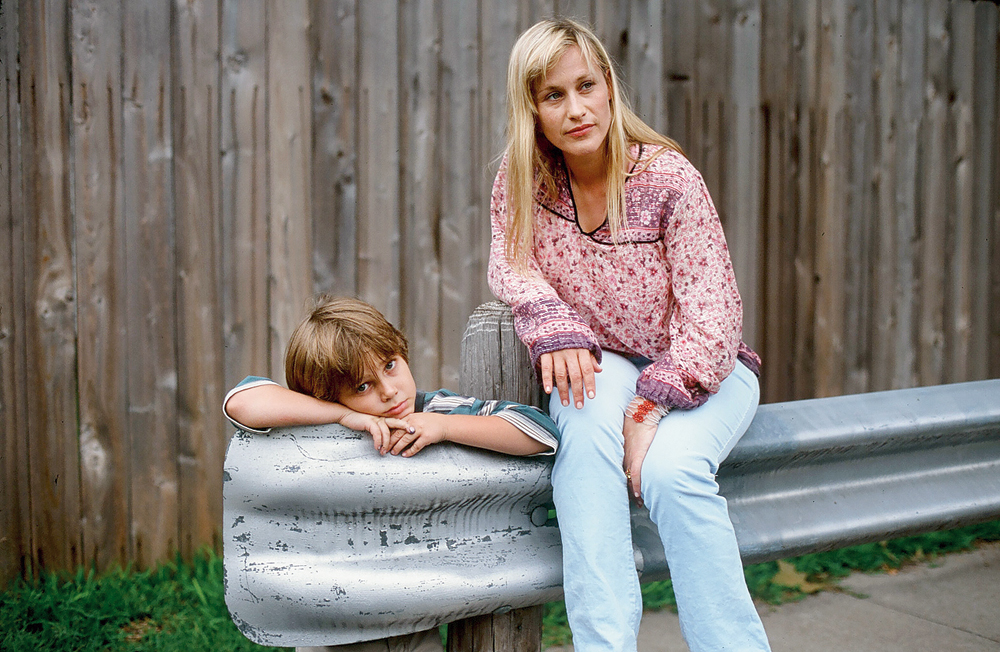
A scene from the movie Source: ‘Boyhood’
2014: Boyhood
Director: Richard Linklater
Often described as “the film of the decade” and “the achievement of a lifetime”, Richard Linklater’s time-lapse drama, that traced a boy’s journey from age six to 18, winningly balanced its epic scale with intimate storytelling.
Filmed over a staggering 12-year period, this befitting nominee of six Academy Awards, including Best Picture and Best Director, literally took a boy and made him into a man, with Ellar Coltrane powering this coming-of-age film (it was, of course, much more than just a coming-of-age film).
A fearless experiment by one of the most groundbreaking directors of our times, Boyhood scored as a seamless portrait of childhood, adolescence and parenting, culling out the extraordinary from the seemingly ordinary. Everyone pitched in with pitch-perfect acts — Patricia Arquette won an Oscar, Ethan Hawke was incredible — making Boyhood a spiritually uplifting and sublime cinematic experience.
Special mention: Birdman
Master storyteller Alejandro G. Inarritu fashioned this compelling tale of a faded Hollywood actor (Riggan Thomson, played by Michael Keaton) struggling to mount an ambitious Broadway production.
A quasi-religious fable about a man haunted by his past and battling an existential crisis, this engaging film stood out for its astounding technical finesse and scintillating acts from Keaton and Edward Norton.
Passionately rendered and evocatively acted, Birdman was distinguished by its visual flair, its camera acting almost like a character.
It was a rare film that was both zesty and light, but had tremendous depth, stooping every now and then to inject humanity into the neuroses of an artiste. Provocative, complex, startlingly clever and multilayered, this was one of the most rewarding experiences in cinemas this decade.
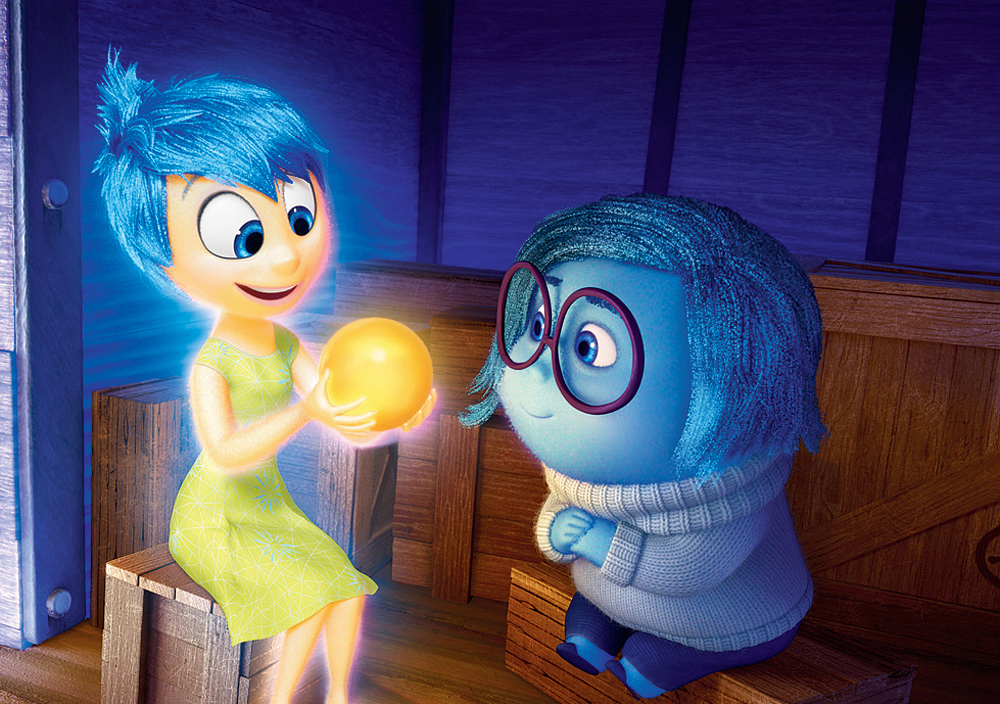
A scene from the movie Source: ‘Inside Out’
2015: Inside Out
Director: Pete Docter and Ronnie del Carmen
Inside Out — that found its audience cutting across age and demographic — told the story of an ordinary 11-year-old trying to adjust to a new life in a new city, and scored with its moving and inventive storytelling with the universality of its theme making it an instant classic.
Armed with clever writing and gorgeously animated visuals, the film struck a chord with kids and adults alike, displaying a keen understanding of childhood, its precious joys and its deepest fears. It navigated tricky subjects like depression and insecurity with a lightness of touch. The insights were sharp and the messaging accurate. Inside Out made many of us want to be kids again.
Special mention: Spotlight
The piece-by-piece investigation of sexual abuse in the Boston archdiocese in the early 2000s was the subject of this Tom McCarthy directorial that won the Academy Award for Best Picture that year.
Spotlight may have dealt with a grim subject, but McCarthy gave it the mood and momentum of a detective thriller, its tautness of plot being ably matched by some transformative performances. It may have been prosaic in parts, but there’s no denying that Spotlight was a fine piece of filmmaking, honouring both its audience and its subject.
Gripping, shocking, distressing and ultimately, triumphant, Spotlight worked on many levels — legal thriller to newsroom drama to an examination of human frailty and morality.
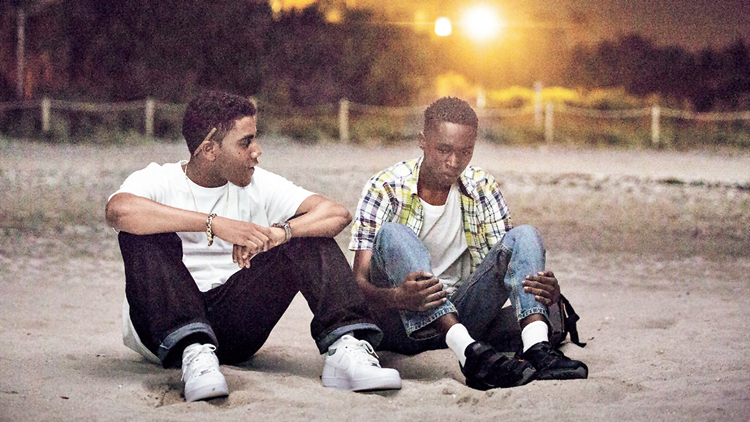
A scene from the movie Source: ‘Moonlight’
2016: Moonlight
Director: Barry Jenkins
Barry Jenkins crafted a seminal human drama that took a look at one man’s life (Chiron, played by various actors, but most memorably by Trevanthe Rhodes) to tell the story of many, many lives.
The best thing about Moonlight was its resistance to classification, with artistry and emotion combining in a way rarely seen on screen before. It was a nuanced take on identity marred by cultural expectations and communal traditions and worked both as a coming-(out)-of-age story as well as an exploration of human nature, propelled by an Oscar-winning turn from Mahershala Ali. It used its silences as effectively as its words, pushing the envelope when it came to portraying both emotion and empathy. The fact that it’s the first film with an all-black cast and the first LGBTQ-related film to win the Oscar for Best Picture — snatching it from La La Land after what can be counted as the most dramatic moment in Oscar history — makes it even more significant.
Special mention: La La Land
Director Damien Chazelle crafted a magical love letter to the golden age of Hollywood with this heartwarming musical of a young couple who fall in love while pursuing their tinsel-town dreams in Los Angeles.
A winning splash of sound and colour, La La Land promised joy—and delivered it in heaps — triumphing in its simplicity and seamlessly matching clever lines with beautifully choreographed numbers. Its escapist form of entertainment may have packed in too many excesses, but for many of us, it was time well spent at the theatre, becoming an ode to those who dare to dream.
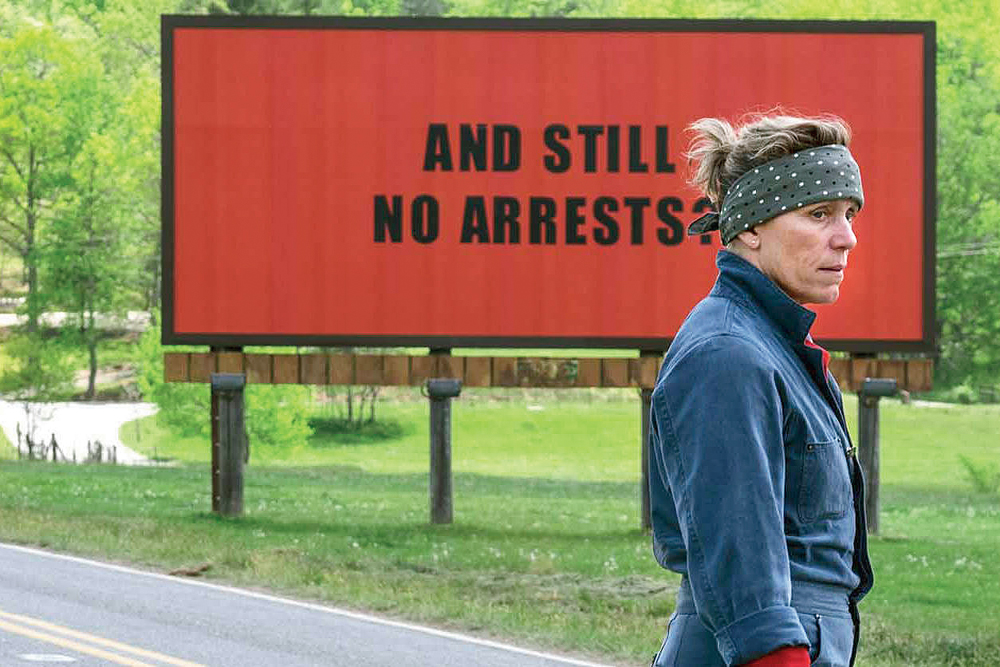
A scene from the movie Source: ‘Three Billboards Outside Ebbing, Missouri’
2017: Three Billboards Outside Ebbing, Missouri
Director: Martin McDonagh
Three Billboards Outside Ebbing, Missouri was a textbook example of how to take something as grim as death and turn it into a rousing and cathartic experience in cinemas.
The film — with Frances McDormand’s searing Oscar-winning depiction of a grieving yet gutsy mother being one of the major takeaways — could have easily slipped into depressing territory, but gracefully balanced the harrowing with the humorous.
Rooted in a very real portrayal of grief, Three Billboards was an emotionally volatile journey, its overtones of dark wit saving it from becoming just another revenge drama. McDormand was ably supported by strong acts from Sam Rockwell and Woody Harrelson, with director Martin McDonagh painting an honest film that was peppered with moments of genuine pain and yet had ample doses of hope and humour.
It was a film that demanded to be seen, with McDormand walking the rebel and rough-around-the-edges walk and talk, both on screen and off it.
Special mention: The Shape of Water
Guillermo del Toro’s genius was behind this creature feature — a Best Picture and Best Director Oscar winner — that was both seductive and melancholic.
Punctuated by nods to many a Holly classic, the film had del Toro delivering an emotionally moving story through some visually distinctive filmmaking, with a career-defining performance by Sally Hawkins.
The Shape of Water culled romance from a story that had no romance, with its evocative and enthralling images being one of del Toro’s best, easily on a par with his Pan’s Labyrinth.
The film balanced heart-wrenching with heartwarming brilliance, with del Toro exhibiting a deep understanding of flawed humans and eccentric creatures.

A scene from the movie Source: ‘Roma’
2018: Roma
Director: Alfonso Cuaron
Roma, directed by Alfonso Cuaron and a Spanish language film that streamed on Netflix after a limited theatrical release, not only changed the dynamics of the movie-watching game, but also gave us a tale both epic and intimate.
On the surface, it told the story of a housekeeper working tirelessly for a Mexican family in the 1970s, but what gave it much of its power and pathos was its deeply autobiographical mood and moments, with Cuaron confessing that a large part of the film was drawn from his own childhood.
A triumphant blend of tragedy and comedy, Roma — that won Best Director and Best Foreign Language Film at the Academy Awards — was the tale of one family, but mounted in a way that made it universal, looking at life on a grand scale and transporting the viewer back in time and space.
Special mention: Green Book
Green Book boasted a warm heart and crackling acts. The theme may have been potentially bumpy — a black jazz pianist (Mahershala Ali) confronts the racist nature of his chauffeur (Viggo Mortensen) while on a road trip and slowly overturns it — but Green Book, fuelled by director Peter Farrelly’s deft touches, was essentially a feel-good watch that became the film it is on the strength of Ali and Mortensen’s endearing performances.
Flawed — its ‘white saviour’ complex couldn’t be ignored — Green Book was nonetheless an oddly joyful experience that spoke winningly about breaking down barriers and building friendships.
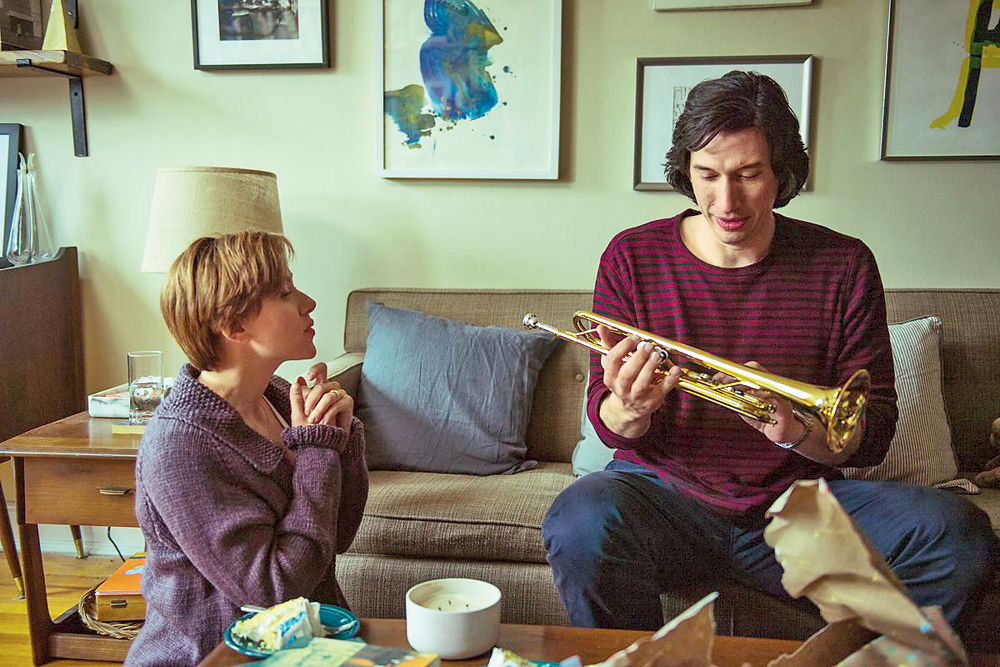
A scene from the movie Source: ‘Marriage Story’
2019: Marriage Story
Director: Noah Baumbach
The importance of keeping it graceful even while going through something as life-changing, and potentially messy, as divorce, was at the heart of Baumbach’s heartwarming and heart-rending film that had Scarlett Johansson and Adam Driver turning in the performances of their careers.
A mix of pleasure and pain that cut deep, Marriage Story’s magic lay in its moments — Nicole (Johansson) and Charlie (Driver) having each others’ backs and never losing out on their bond even when the going got tough — was especially poignant and oddly powerful.
Baumbach —who has crafted many a seminal relationship drama in the past — put heart and soul into this one, coming up with a brave and affecting film that examined a crumbling relationship even as it trained a critical lens on the corruptions inherent in the system that prevent exes from keeping it civil. Devastating yet funny, sad yet hopeful, Marriage Story stands out for its uninhibited display of raw emotions… when Charlie collapses in a heap at Nicole’s feet after a screaming match, you want to hold them both close. That’s how powerful and personal Marriage Story is.
Special mention: Joker
The most controversial film of the year is also one of its finest. In what could potentially become the definitive original tale of the Joker, Joaquin Phoenix came up with the performance of a lifetime — dark, terrifying, brilliant and unforgettable — in Todd Phillips’s toxic, twisted and timely take on the dark evolution of the DC Comics villain.
A nightmarish portrait of urban isolation and a gritty comic book-origin story, Joker was peppered with powerful moments — unhinged, raw, extreme — rarely seen in a single film before. The film told its story without apology, with Phoenix’s jaw-dropping portrayal — he used his body as a weapon, even before his transformation into the Joker — carrying the film even in its most meandering moments.

